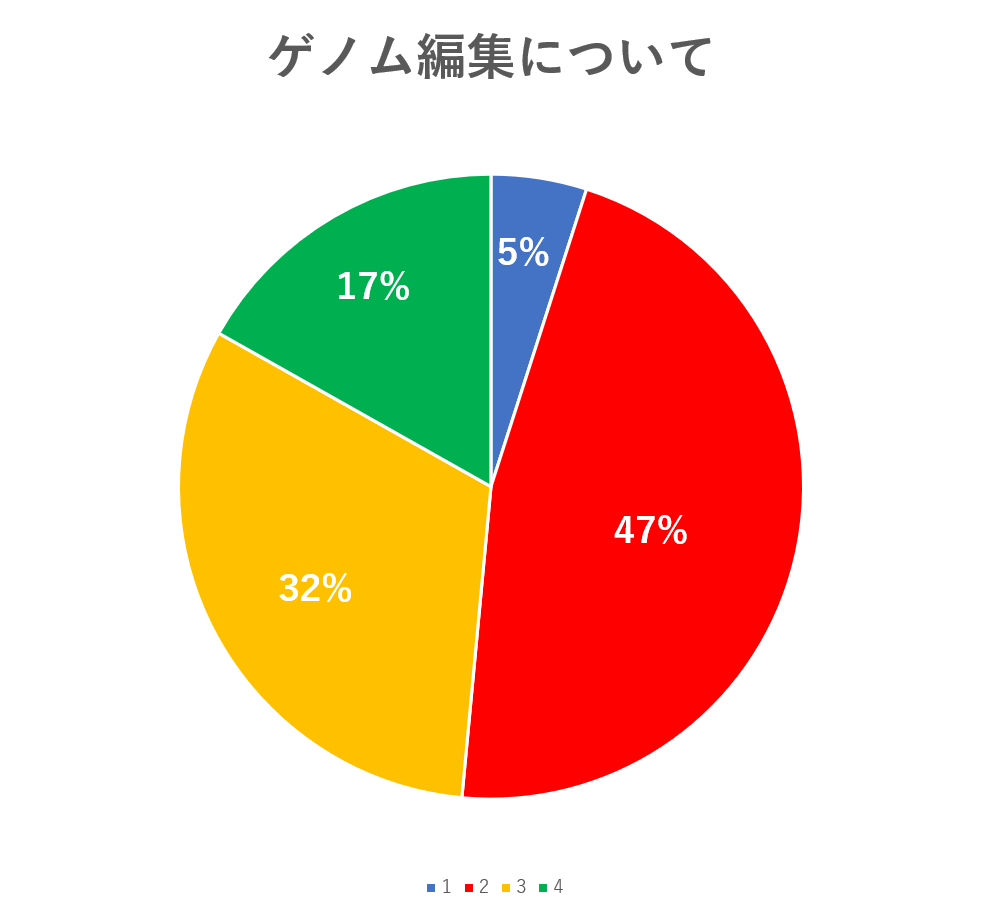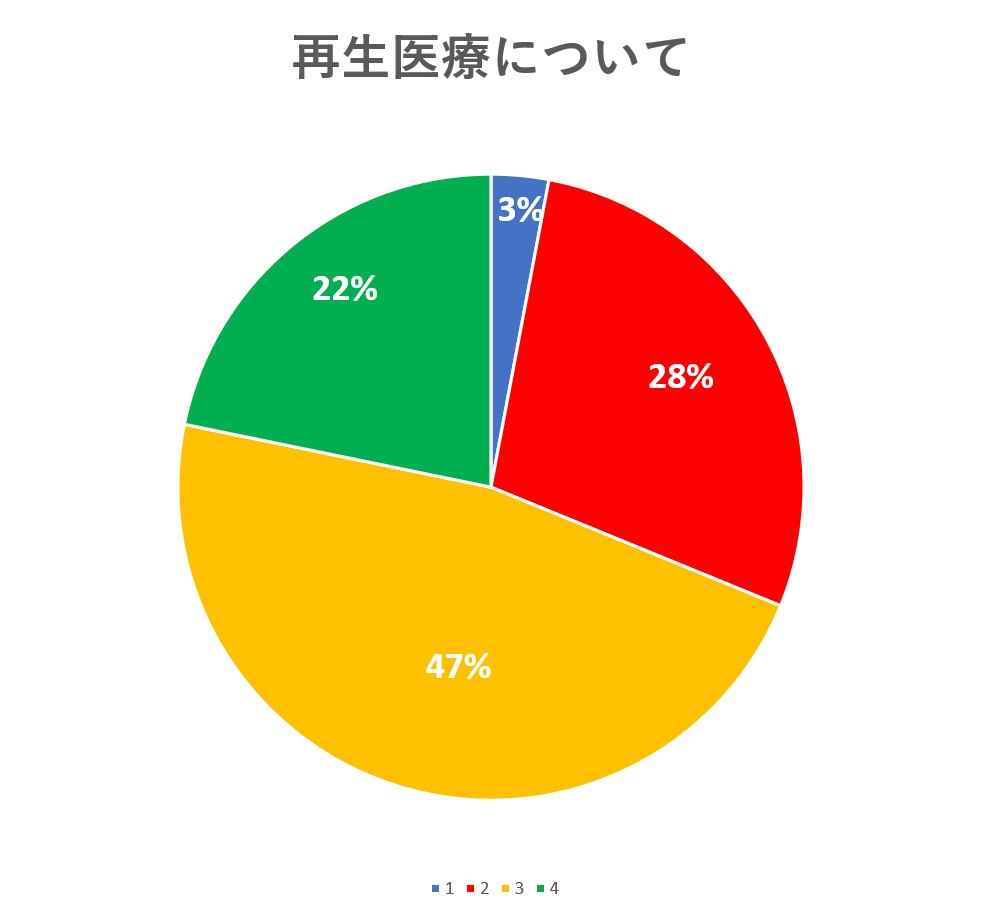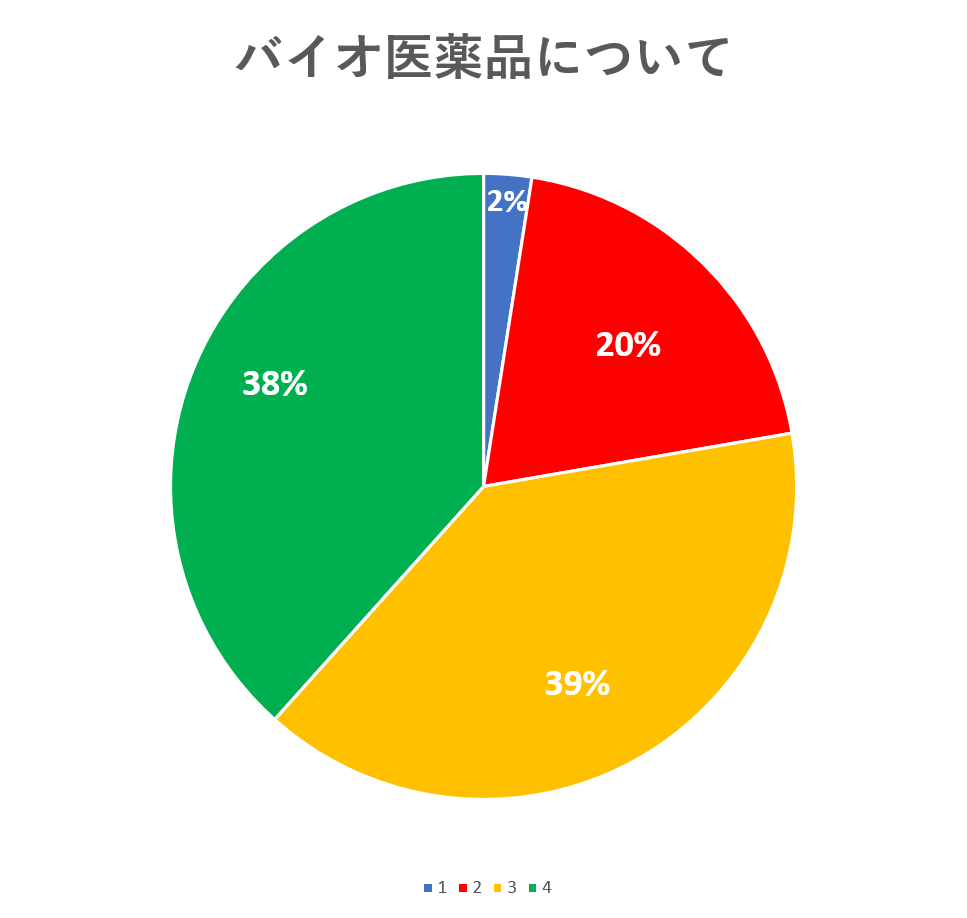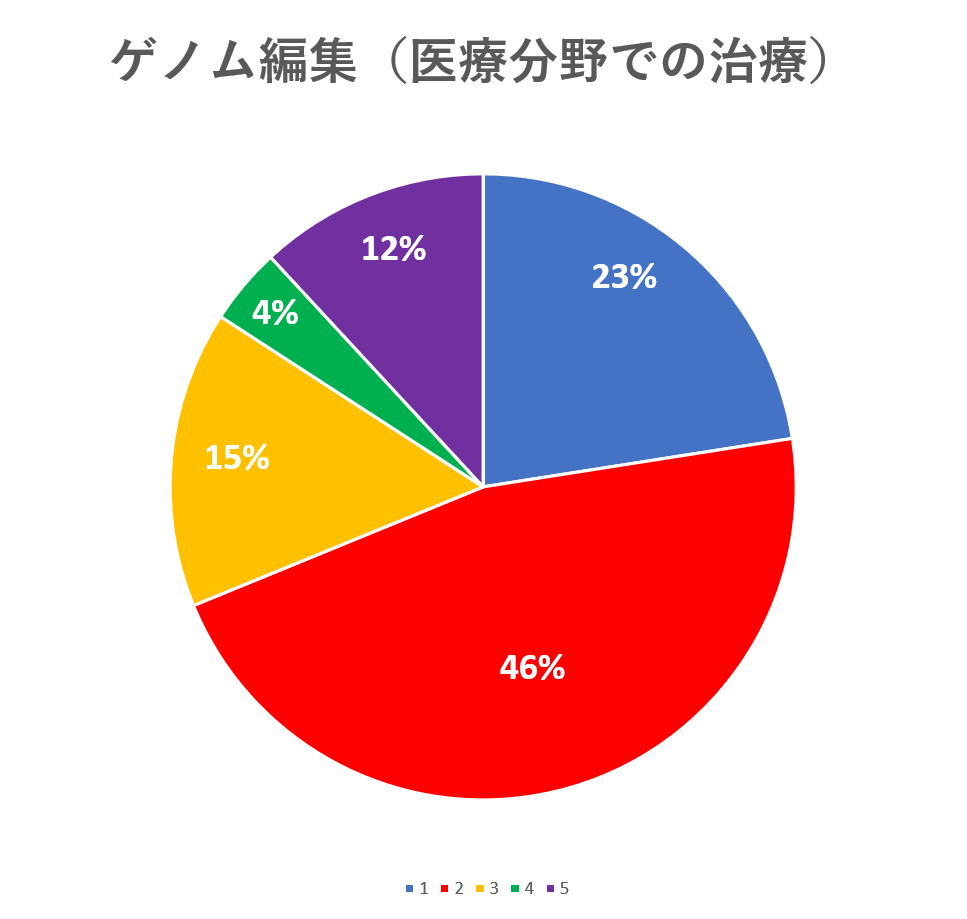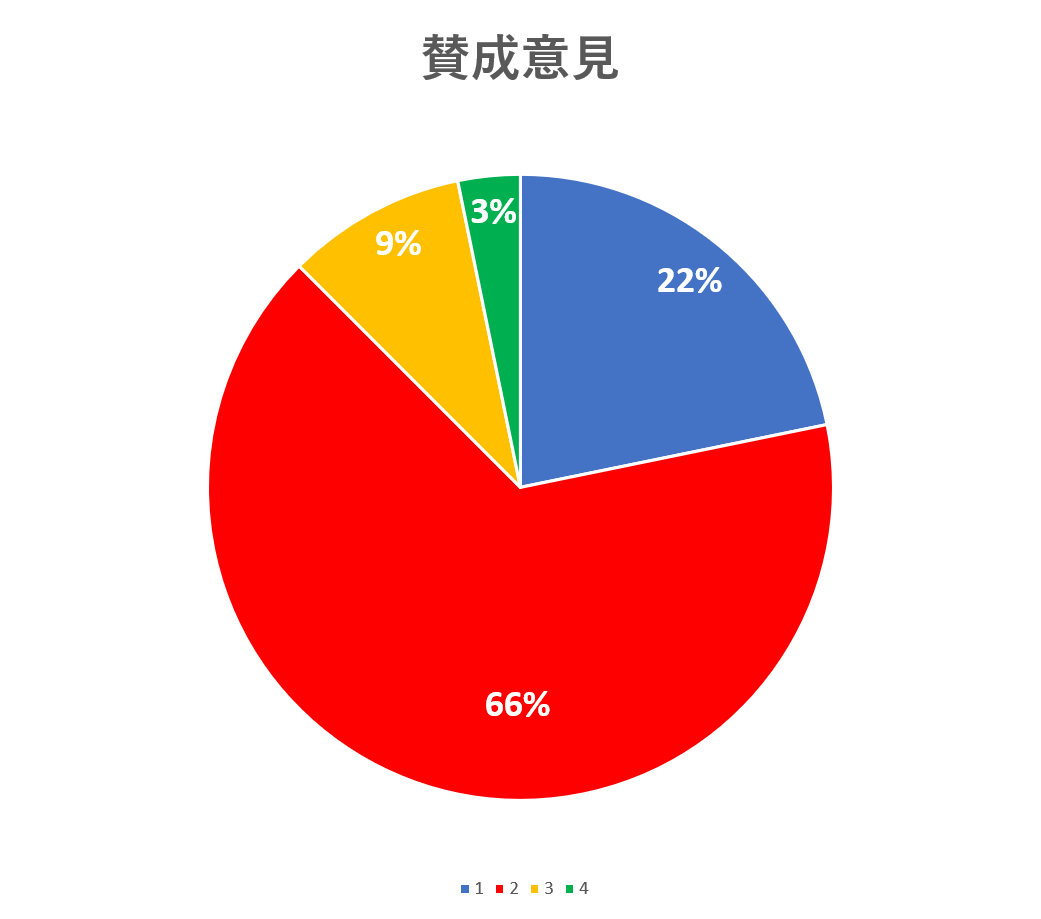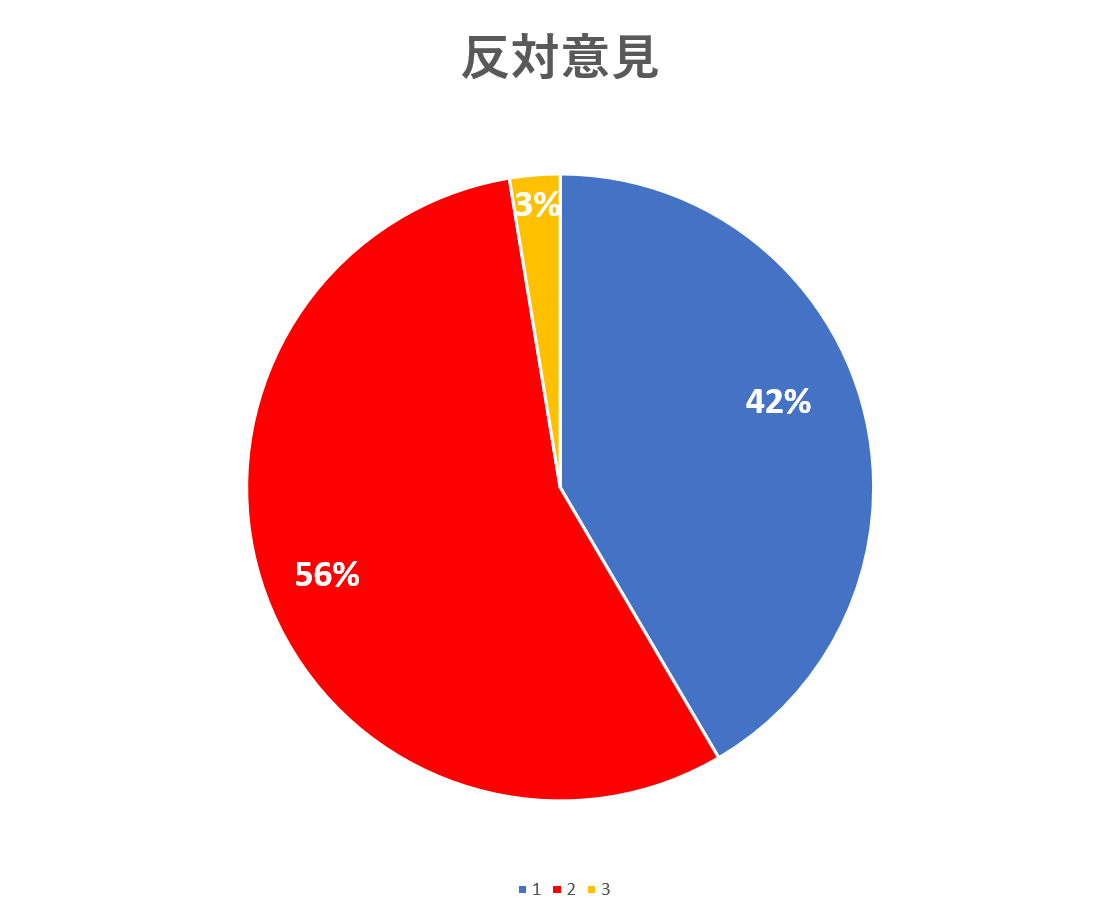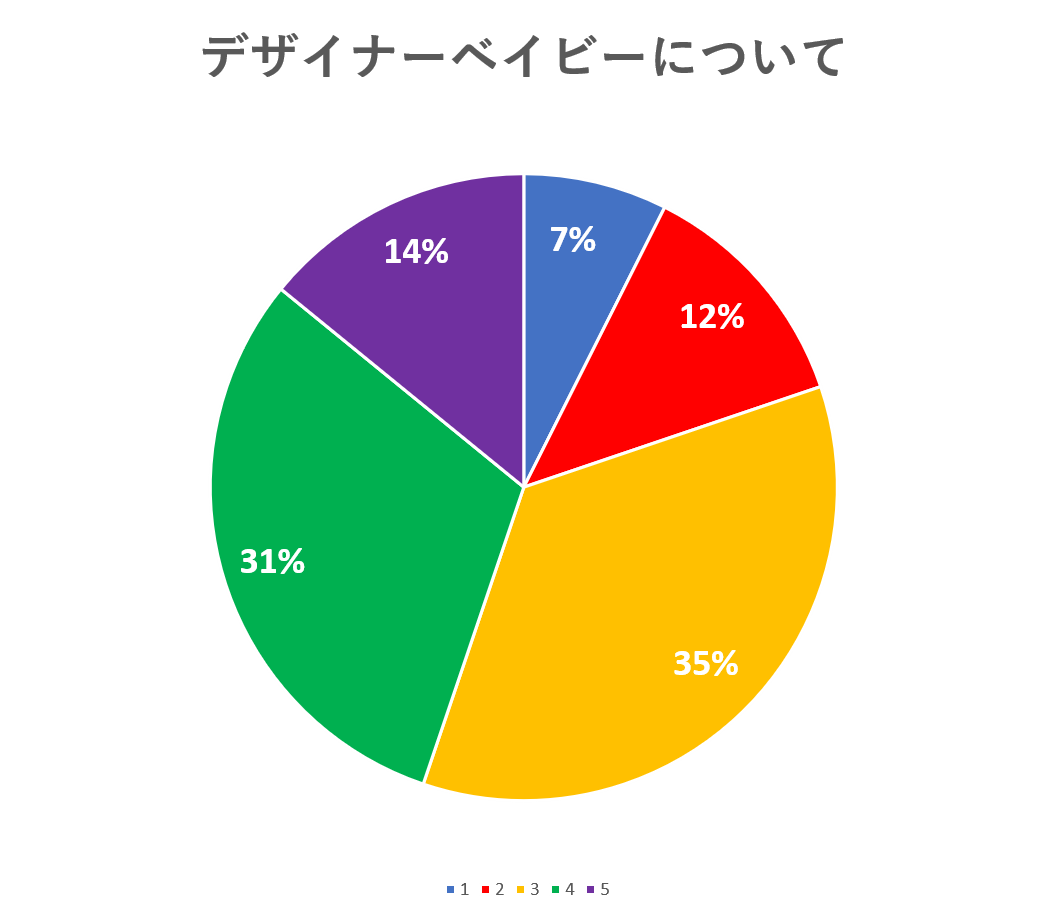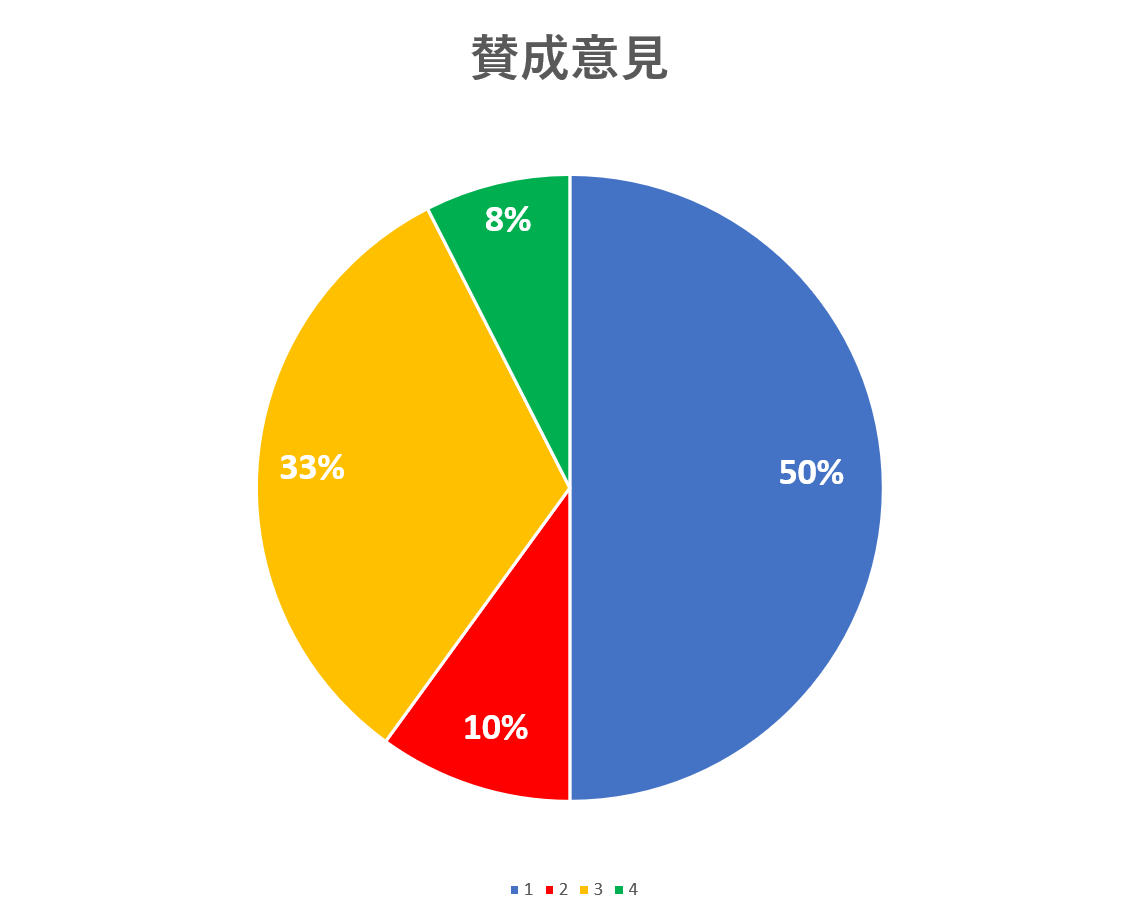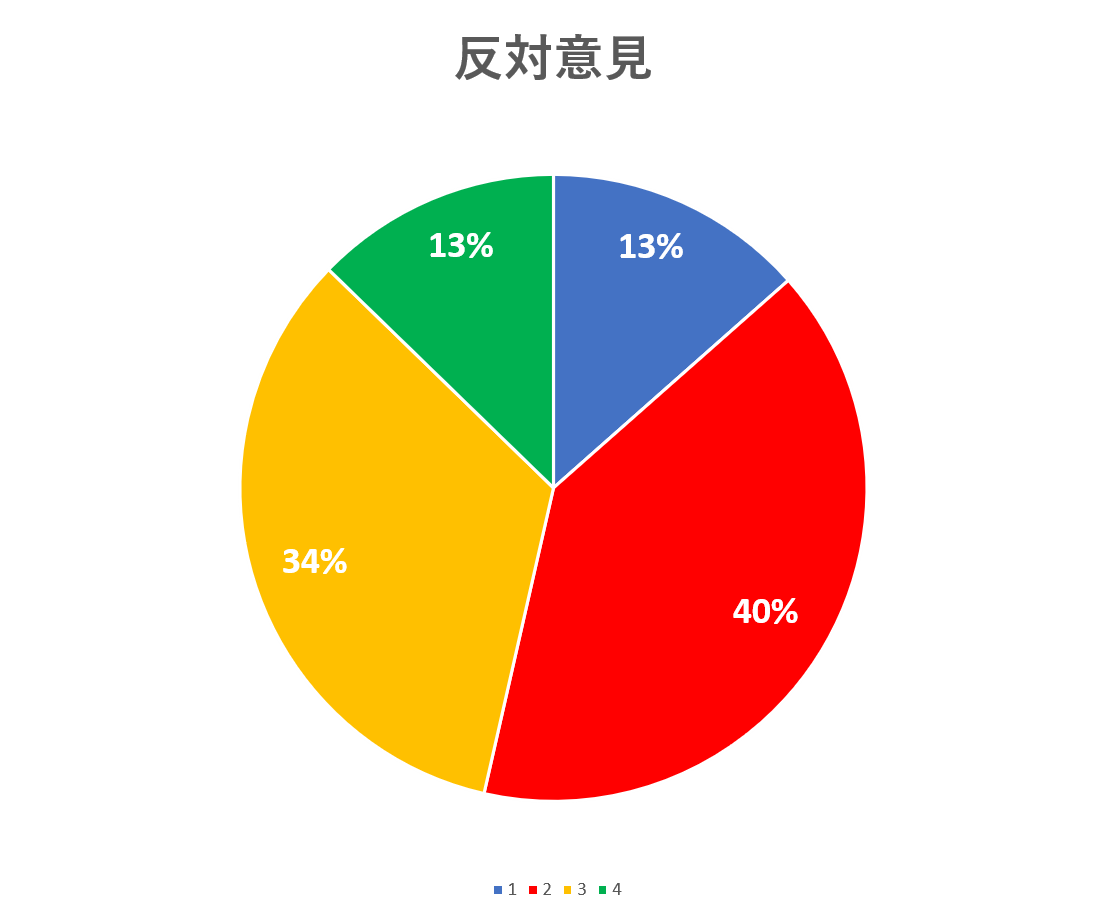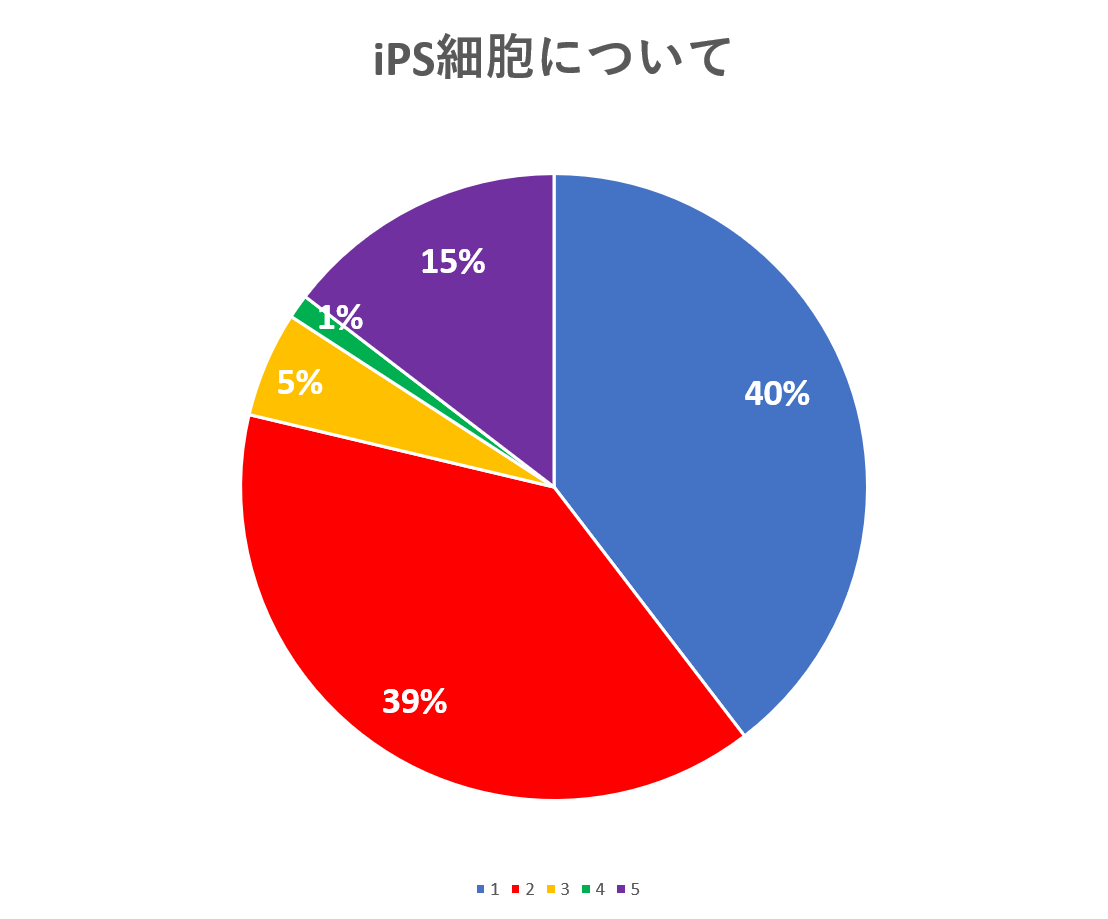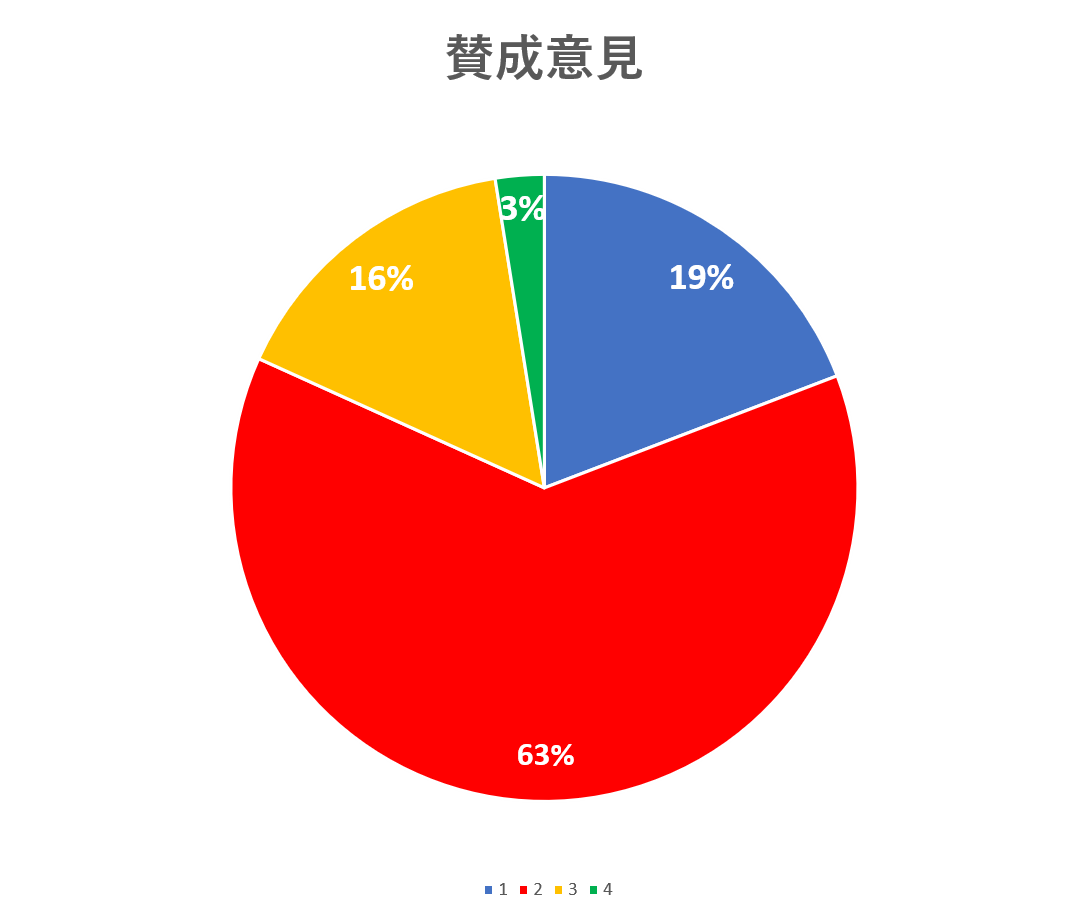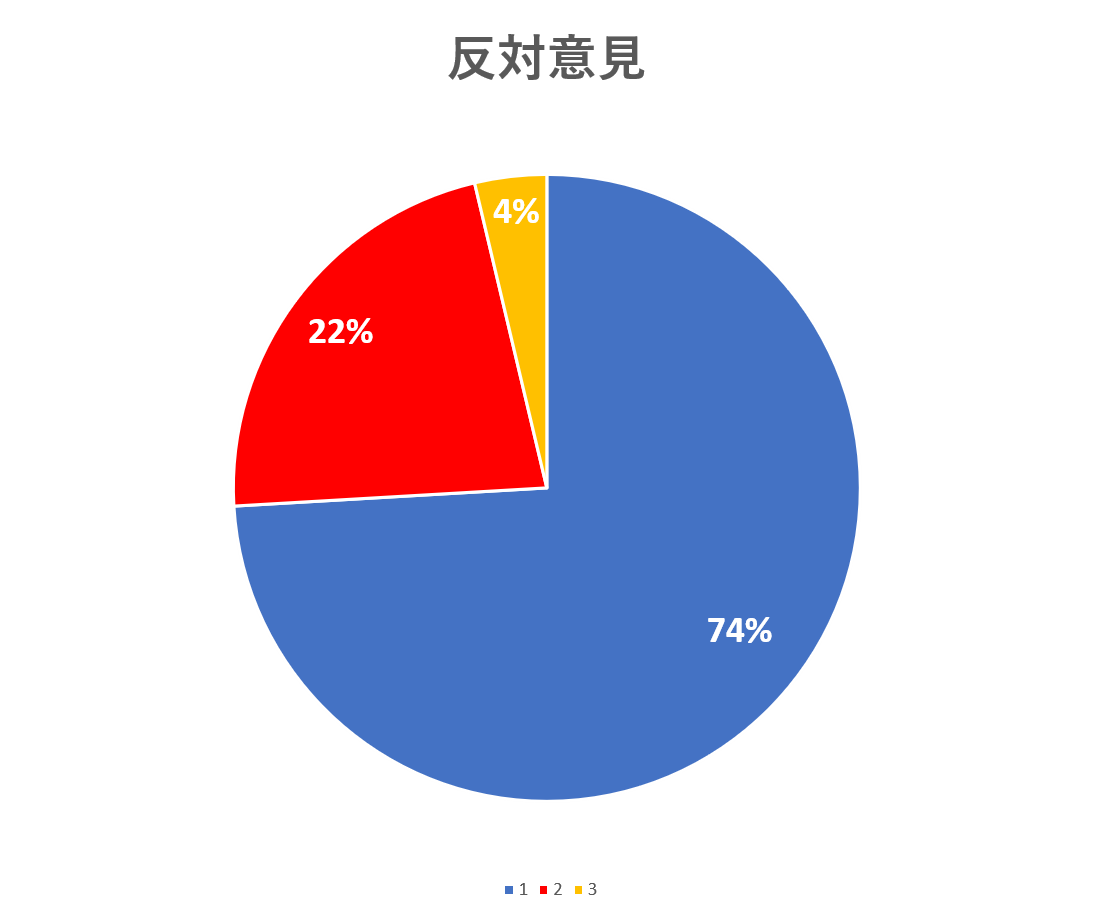Questionnaire Reflects Image of Biomedicine
We conducted a survey of students at Shibaura Institute of Technology Kashiwa Junior and Senior High School to find out what their generation thought about biomedicine.
The survey was conducted in the third year of junior high school and the first and second year of high school, and we received 404 responses. The survey was conducted in three grades: junior high school (3rd year), high school (1st year), and high school (2nd year).
Survey in school
We conducted a survey on the awareness of genome editing, and the results were as follows: "I know about it in detail (5%, 20 people)," "I know about it but not in detail (47%, 188 people)," "I have heard about it (32%, 132 people)," and "I don't know about it (17%, 68 people).
These were the results of the survey. With 83% of respondents knowing the term "genome editing," it is clear that the term has become quite popular even among the younger generation.
Many students knew more about regenerative medicine (3%, 12), less about regenerative medicine (28%, 114), more about regenerative medicine (47%, 190), and less about regenerative medicine (22%, 88).
The number of students who knew about regenerative medicine was slightly lower than that of genome editing, but higher than that of genome editing.
As for biopharmaceuticals, "I know about them in detail (2%, 10 respondents)," "I know about them but not in detail (20%, 80 respondents)," "I have heard of them (39%, 159 respondents)," and "I don't know about them (38%, 155 respondents).
The number of respondents who had heard of biopharmaceuticals was 39% (159 respondents) and 38% (155 respondents), indicating that the awareness of biopharmaceuticals was not as high as the previous two.
As for the use of genome editing in the medical field, most of the respondents agreed (23%, 91), somewhat agreed (46%, 187), somewhat disagreed (15%, 190), disagreed (4%, 16), and did not know (12%, 48).
For the use of genome editing in the medical field, most of the respondents were in favor of the idea, with "somewhat opposed (15%, 190 people)," "opposed (4%, 16 people)," and "don't know (12%, 48 people). I think this is due to the influence of the Nobel Prize in the field of genome editing, which has attracted a lot of attention.
When asked why they were in favor of the use of genome editing in the medical field, we found that expectations for the fundamental treatment of genetic diseases were particularly high: "realization of medical treatment using therapeutic cells (22%, 61 respondents)," "fundamental treatment of intractable diseases such as genetic diseases (66%, 184 respondents)," and "development of new drugs (9%, 26 respondents).
When asked why they were opposed to the use of genome editing in the medical field, we found that safety concerns (42%, 32 respondents) and ethical issues (56%, 43 respondents) were the two most common reasons for their opposition, with safety and ethical issues accounting for most of the concerns.
When asked about designer babies, we found that many people are concerned about designer babies at this point in time: "I agree (7% 30 people)," "Somewhat agree (12% 50 people)," "Somewhat disagree (35% 143 people)," "Disagree (31% 124 people)," and "Don't know (14% 57 people).
When asked why they were in favor of designer babies, they said that it would help prevent disease (50% 40 people), contribute to society (10% 8 people), and allow them to have better abilities (33% 26 people), as well as opinions other than medicine, such as contributing to society and having better abilities.
When asked why they were opposed to designer babies, as in the case of genome editing, safety concerns (13%, 36 respondents), ethical issues (40%, 107 respondents), and the inability of the child to make his or her own choices (34%, 90 respondents) were the major concerns, with the ethical issues being particularly related to the rights of the child.
When asked about the medical aspects of iPS cells, 79% of the students were in favor of iPS cells, including 40% (160 students), 39% (158 students), 5% (22 students), 1% (5 students), and 15% (59 students), indicating that most students have high expectations for iPS cells.
When asked why they were in favor of iPS cells, the results showed that expectations for regenerative medicine using iPS cells were particularly high: "It can be used to make drugs (19% 61 people)," "It will enable organ regeneration (63% 199 people)," and "It will be less likely to cause rejection by the body and have fewer side effects (16% 50 people).
When asked why they were opposed to iPS cells, the same as the other questions, "Concerns about safety (74%, 20 respondents)" and "Ethical issues (22%, 6 respondents)" seemed to be the major concerns.
Survey Discussion
The first thing we found in this survey was the high level of awareness of the biomedical field. In every question, the level of awareness exceeded the majority, and with the exception of biopharmaceuticals, the level of awareness exceeded 80%.
Next, the factors that make people uneasy about biomedicine were similar in all fields. Safety" and "ethical issues," which were common to all the opposing opinions, are likely to be particularly important issues in advancing biomedicine.
The most common opinions in favor of biomedicine were about regeneration of organs, treatment of intractable diseases, and other fundamental treatments for diseases and injuries. This is a big difference from conventional medicine, and it made me think again about the goal of biomedicine.
In a questionnaire to the students, many expressed their expectations for the fundamental treatment of diseases and regenerative medicine, but there were also strong concerns about safety and ethical issues.
As the debate over safety and ethical issues progresses, that image may change!
 | Now you have an idea of what bio-medicine is all about! |
